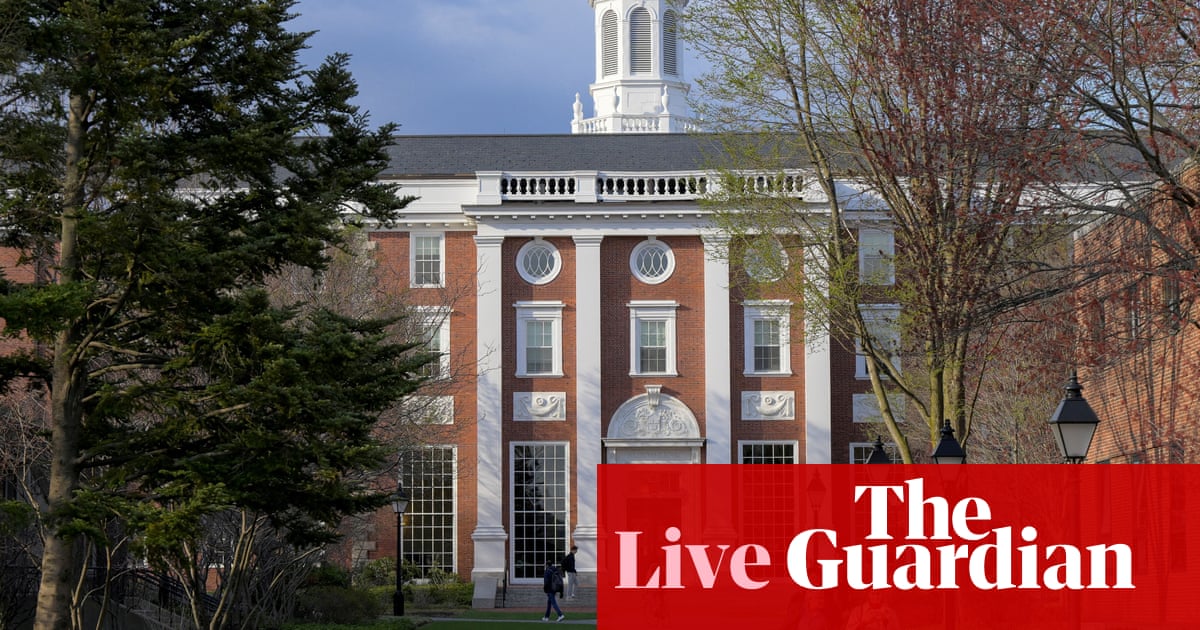China Pledges Support for Overseas Students After Trump’s Harvard Curb
Introduction
In a significant twist in US-China relations, the Trump administration has taken decisive action against Harvard University, specifically revoking its ability to enroll international students. This move has sparked substantial reactions, particularly from China, which has swiftly pledged to support its overseas students affected by this decision.
The Revocation of Harvard’s Enrollment Capabilities
The Department of Homeland Security (DHS) announced the revocation on Thursday, claiming that Harvard has fostered an unsafe campus environment. This statement accused the Ivy League institution of permitting “anti-American, pro-terrorist agitators” to assault Jewish students. Furthermore, the DHS alleges that Harvard has collaborated with the Chinese Communist Party, even claiming the university hosted a Chinese paramilitary group in recent years.
As a result of this revocation, Harvard—home to nearly 6,800 international students, constituting over a quarter of its student body—has been instructed that it must cease enrolling foreign students. Current international students face the possibility of transferring to other institutions or facing the loss of their legal status in the United States.
China’s Response and Support for Overseas Students
In light of these developments, China’s foreign ministry has made it clear that it intends to safeguard the rights and interests of its overseas students and scholars. Spokesperson Mao Ning remarked on the detrimental impact that US actions could have on its global image and credibility. This statement reinforces the notion that educational cooperation between China and the US has benefits for both nations.
The commitment to support students comes during a time when many Chinese nationals are studying abroad, particularly in the United States, where they have historically represented one of the largest international student populations.
Broader Implications for US Higher Education
The backlash against Harvard and similar institutions raises critical questions about the future of international education in the United States. With the Trump administration’s increasingly aggressive stance on immigration and foreign influence, other universities may face similar scrutiny. The ramifications could extend beyond student enrollment to affect research collaborations, faculty exchanges, and cultural exchanges that have traditionally flourished under more favorable conditions.
Recent Violent Incidents and Political Context
Amidst this educational crisis, the US has been grappling with multiple violent incidents, including a recent attack outside a Jewish museum in Washington, DC. The brazen assault left two young Israeli embassy staff members dead and was condemned by world leaders. The suspect in this case, Elias Rodriguez, reportedly stated that his actions were driven by a desire to support Palestine. Such violent acts contribute to a tense atmosphere around discussions of academic freedom and safety on campuses.
Additional Political Developments
In parallel news, Mahmoud Khalil, a detained Palestinian activist, has gained the ability to hold his infant son, thanks to a federal judge blocking the Trump administration’s separation policies. This event highlights ongoing societal tensions regarding immigration and detention policies.
Also, there have been unexpected political maneuvers domestically. North Dakota’s governor inadvertently vetoed a sizable portion of the state’s housing budget, and the Supreme Court declined to reinstate independent board members dismissed by Trump. These incidents underline an administrative landscape rife with contention.
International Affairs and the EU
On the international front, tensions between the US and the European Union continue to play out, particularly in terms of trade. Negotiators are pushing the EU for tariff reductions on US goods to avoid additional 20% duties. Recent communications have indicated that the EU’s proposed framework for negotiations has not met US expectations, prolonging discussions.
Conclusion
The ongoing developments in US-China relations, particularly revolving around education and international student rights, are only part of a larger and increasingly complex political narrative. As these stories unfold, the impact on global educational partnerships and political dynamics will be closely watched, revealing the intricate connections between academia, policy, and international relations.


